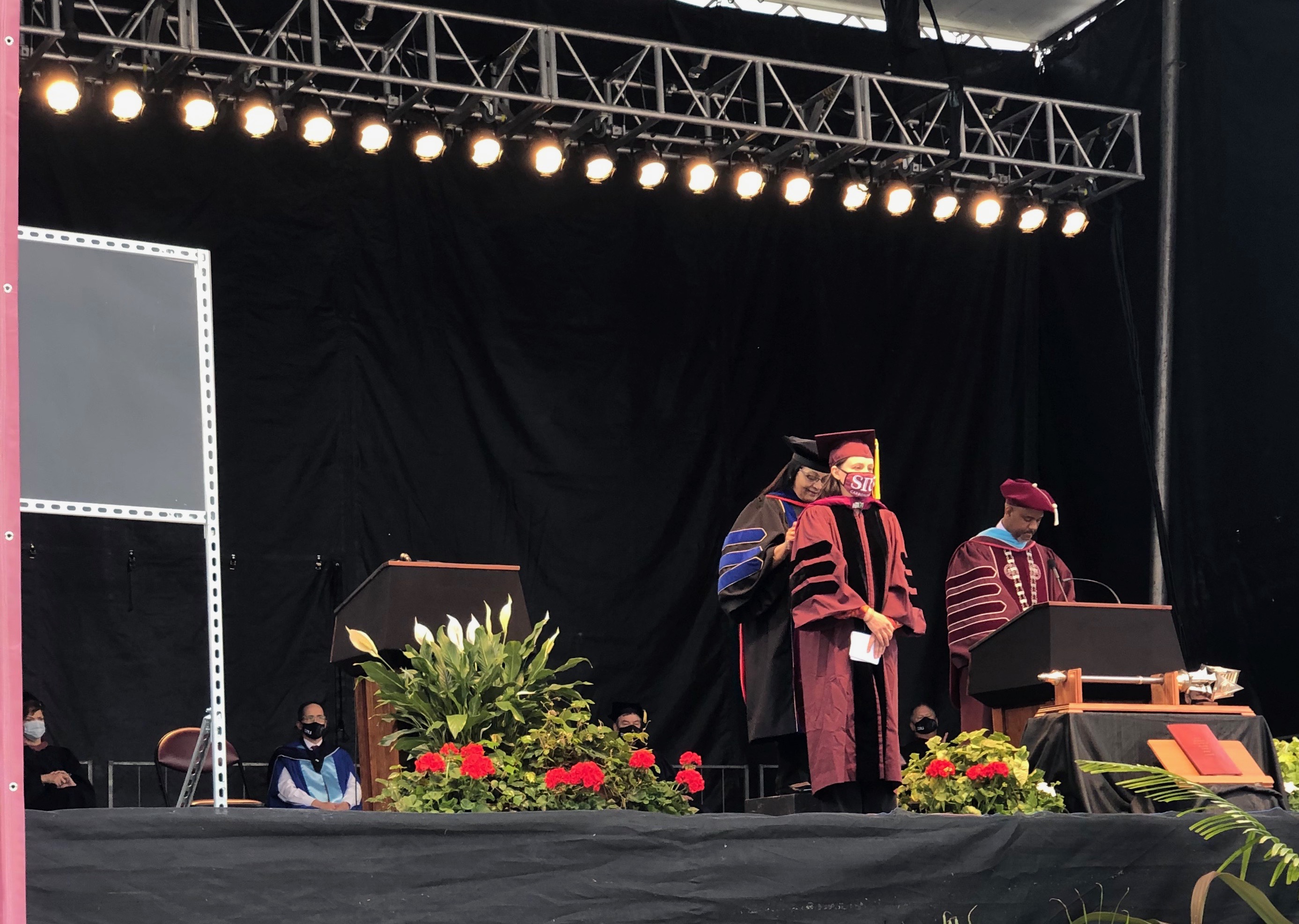Benchslap: Appeals court slams St. Louis circuit attorney for tweets
Dolan Media Newswires
ST. LOUIS – St. Louis Circuit Attorney Jennifer Joyce does something rare for a Missouri prosecutor: She tweets prolifically.
Joyce said she views Twitter posts as a way to “engage the citizens” and let them know what happened after initial news reports on a crime.
But a Missouri appeals court said last week that Joyce’s tweets in a 2012 child-rape trial came too close to crossing an ethical line.
The three judges on a panel of the Missouri Court of Appeals Eastern District upheld the conviction for the 1992 rape of an 11-year-old girl but said they were “troubled” by Joyce’s tweets, particularly their timing.
“I have respect for attys who defend child rapists. Our system of justice demands it, but I couldn’t do it. No way, no how,” Joyce tweeted during the trial, among other remarks, according to the opinion.
“Broadcasting such statements immediately before and during trial greatly magnifies the risk that a jury will be tainted,” judge Lisa S. Van Amburg wrote. Judges Patricia L. Cohen and Gary M. Gaertner Jr. agreed with the opinion.
But David Polk, the defendant, “failed to present evidence that the jury was substantially swayed” by Joyce’s comments, according to the opinion.
Joyce said she’s careful to avoid any comment that could influence a jury.
“I take very seriously my obligation to uphold the defendant’s right to fair trial,” Joyce said in a phone interview. “I also take seriously my obligation to let citizens know what’s going on.”
Since Polk’s trial, Joyce has made one change to how she approaches tweeting. She hasn’t tweeted during a trial for more than a year, she said. It’s not that she thinks it’s inappropriate, but she doesn’t want to create a “distracting issue,” she said.
Joyce’s tweets on Polk’s June 2012 trial at first included only facts.
Joyce announced the upcoming trial with this post: “David Polk trial next week. DNA hit linked him to 1992 rape of 11 yr old girl. 20 yrs later, victim now same age as prosecutor.”
Joyce ratcheted up the opinion content when the jury went into deliberations, tweeting, “I hope the victim gets justice, even though 20 years late.”
Post-verdict, Joyce tweeted about the “brave victim” and the “man who terrorized her,” according to the opinion. Polk received a 15-year sentence.
The appeals court opinion acknowledged that the basic facts underlying Joyce’s comments were contained in the felony complaint and probable cause statement, and that they were part of the public record.
“However, extraneous statements on Twitter or other forms of social media, particularly during the time frame of the trial, can taint the jury and result in reversal of the verdict,” Van Amburg wrote.
In the phone interview, Joyce said she tweeted that the trial was coming up, as is permissible under ethical rules, but she held off, as she always has, on saying anything about a case until a jury has been sworn in and instructed not to seek outside information.
“The reason I do that is because I didn’t want to do anything to interfere with Mr. Polk’s right to a fair trial,” Joyce said. “And I didn’t.”
An American Bar Association Commission of Ethics group has examined social media issues in recent years, but Missouri’s “Rules of Professional Conduct” on publicity aren’t tailored specifically to social media, Rittman said.
“For the most part, it does seem like there are ways to analogize social media and general online communication to older forms of communication,” Rittman said. “That’s been the basic approach so far is just to see how it applies.”
Tweeting is not a “real common thing,” Selby said.
“I would suspect after this case that would be something that will be discussed,” Selby said.
For her part, Joyce agreed with the appeals court upholding the trial result but disagreed with some of the language of the opinion, particularly a sentence saying that the judges “doubt that using social media to highlight the evidence against the accused and publicly dramatize the plight of the victim serves any legitimate law enforcement purpose.”
An engaged citizenry is helpful in fighting crime, and the public doesn’t often hear what happens after initial news reports on a crime, Joyce said.
“They never hear the rest of the story,” Joyce said. “They don’t hear that, 20 years later, we’re going to hang in there and we’re going to prosecute this guy.”
Cole is the senior reporter for Missouri Lawyers Media.
